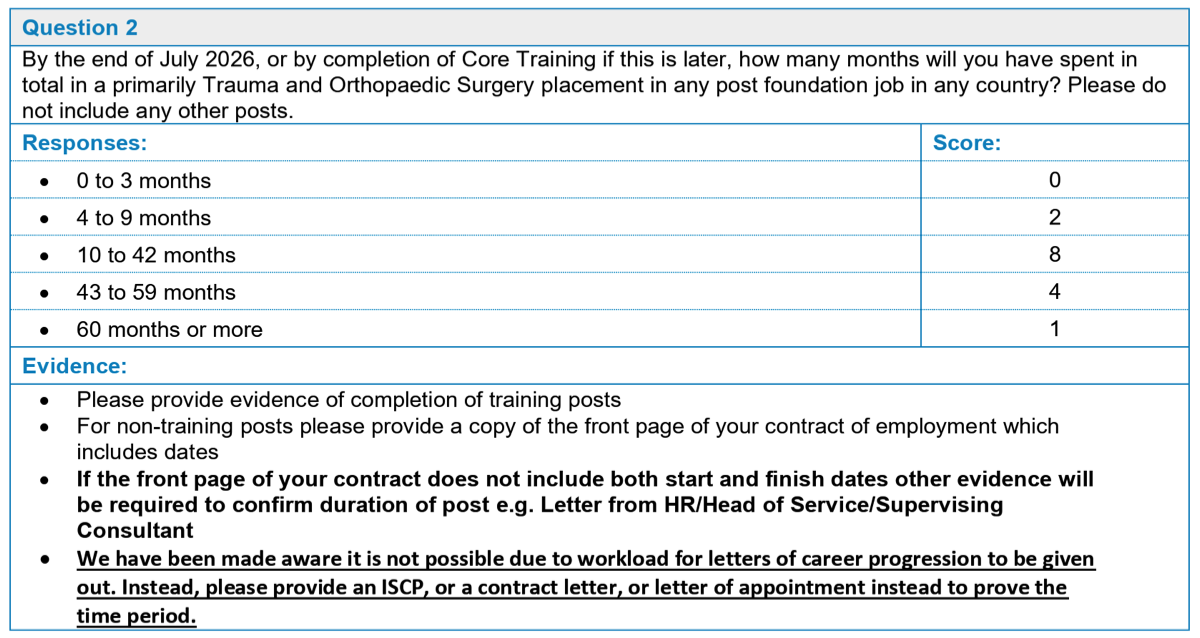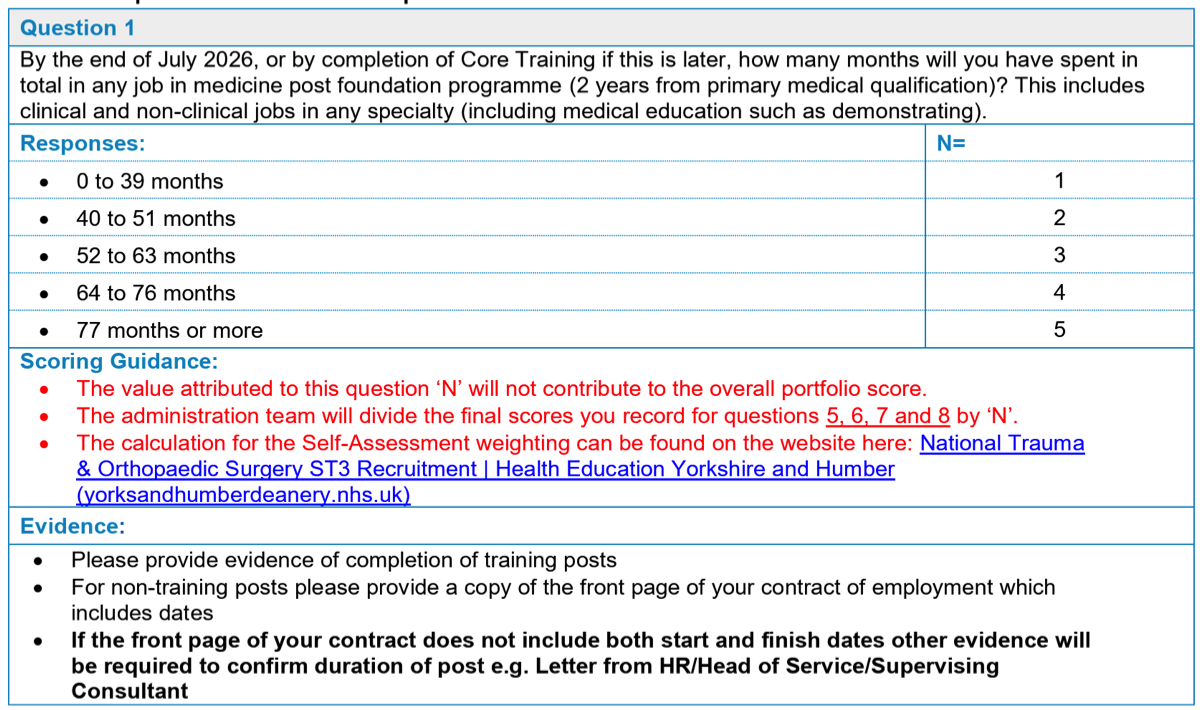T&O Specialty Experience
Responses:
- 0 to 3 months (0)
- 4 to 9 months (2)
- 10 to 42 months (8)
- 43 to 59 months (4)
- 60 months or more (1)

Applying For ST3 Orthopaedics? Want Your First Choice ST3 Orthopaedic Job? Attend The Largest and Most Popular Courses and Try Our Award-Winning Question Bank for Trauma and Orthopaedic Interviews. Let Us Help You Get Your Top Job.
Self Assessment questions appear on the application form along with possible responses to each question. Evidence to substantiate your responses must be easily identified in your portfolio.
Below you will find a break down of the questions asked and the marks available. Improving your CV throughout your medical school, foundation and core surgical training is the best way to ensure a high score. The highest scoring options are highlighted and it should be your goal to reach these by the time of application.
There are a number of multiple-choice Self-Assessment questions built in to the application form. For these questions, you need to select the most appropriate response from a drop-down list.
Your responses to the Self-Assessment questions will be validated against the evidence you submit following application. Evidence to substantiate your answers must be easily identified and follow the strict guidance given in the policy.
You must select the response you feel you will be able to justify to the shortlisting panel, using the evidence you provide.
If it is discovered that any response is false or misleading or if you provide evidence containing Patient Identifiable Data, you may be referred to a Probity Panel.
You will need to upload your evidence to a separate electronic system by 28th January 2026.

A number of BMJ careers articles have looked at the demographics of successful candidates over the years.
Medical imagery licensed under Creative Commons Attribution-Share Alike license; sourced from Wikipedia
All other textual content, imagery, and website design copyright © 2014-25 Ortho Interview all rights reserved.
Contact Us | Privacy Policy | Terms and Conditions